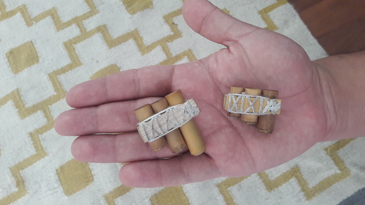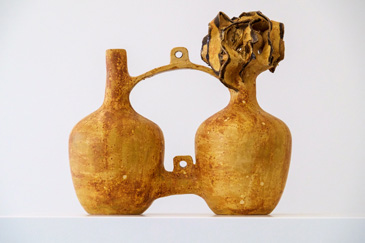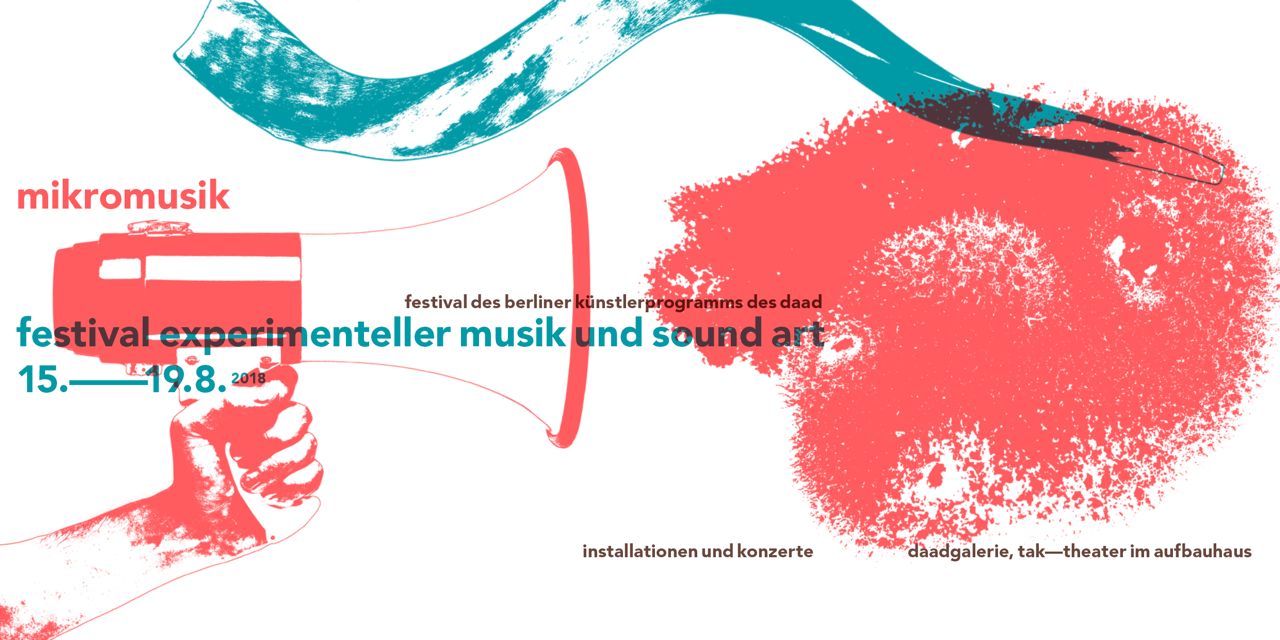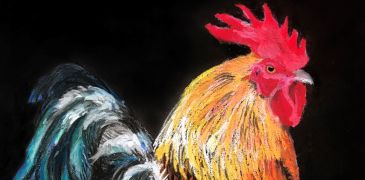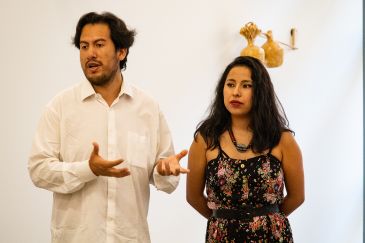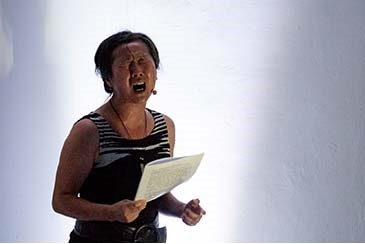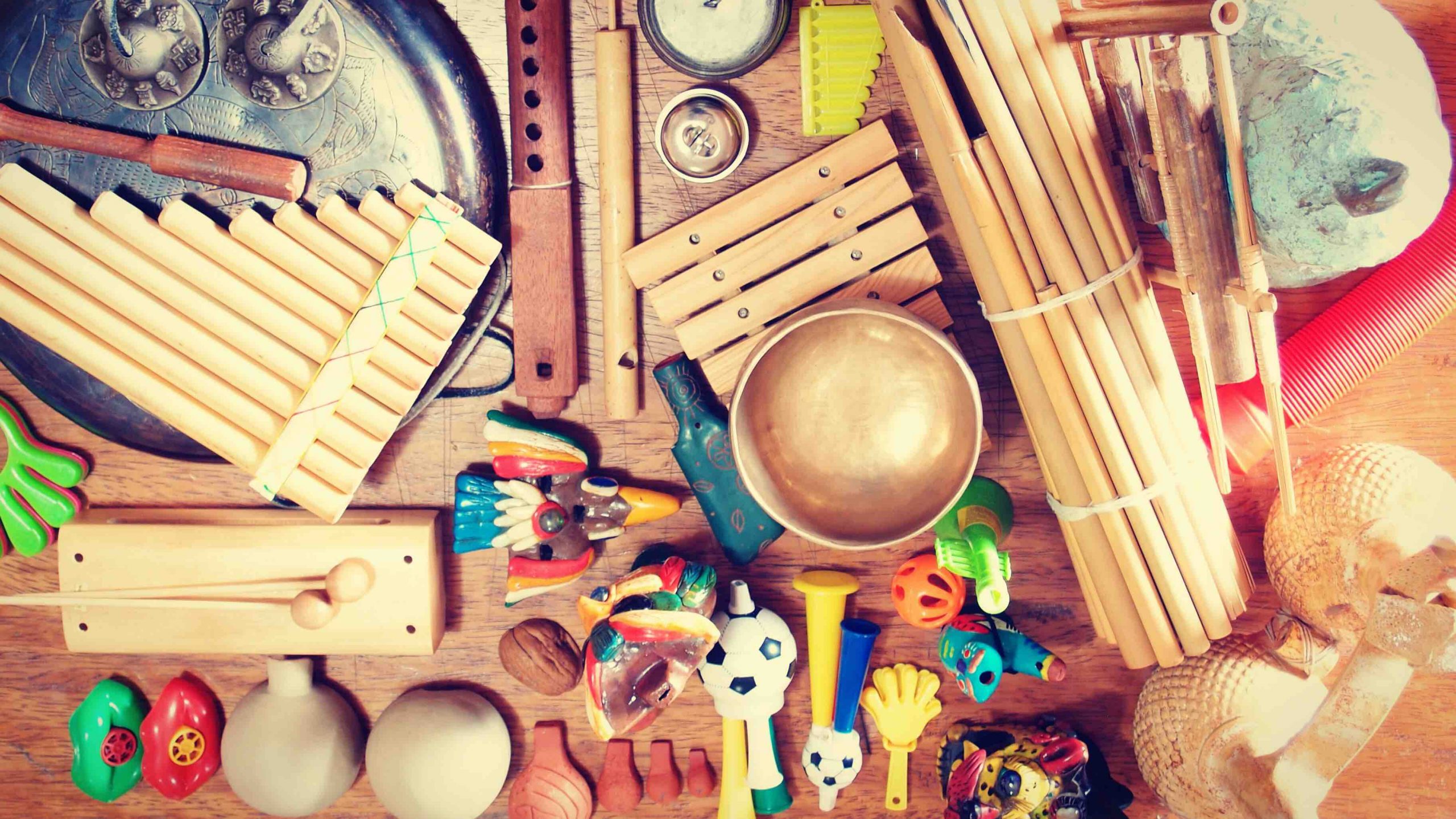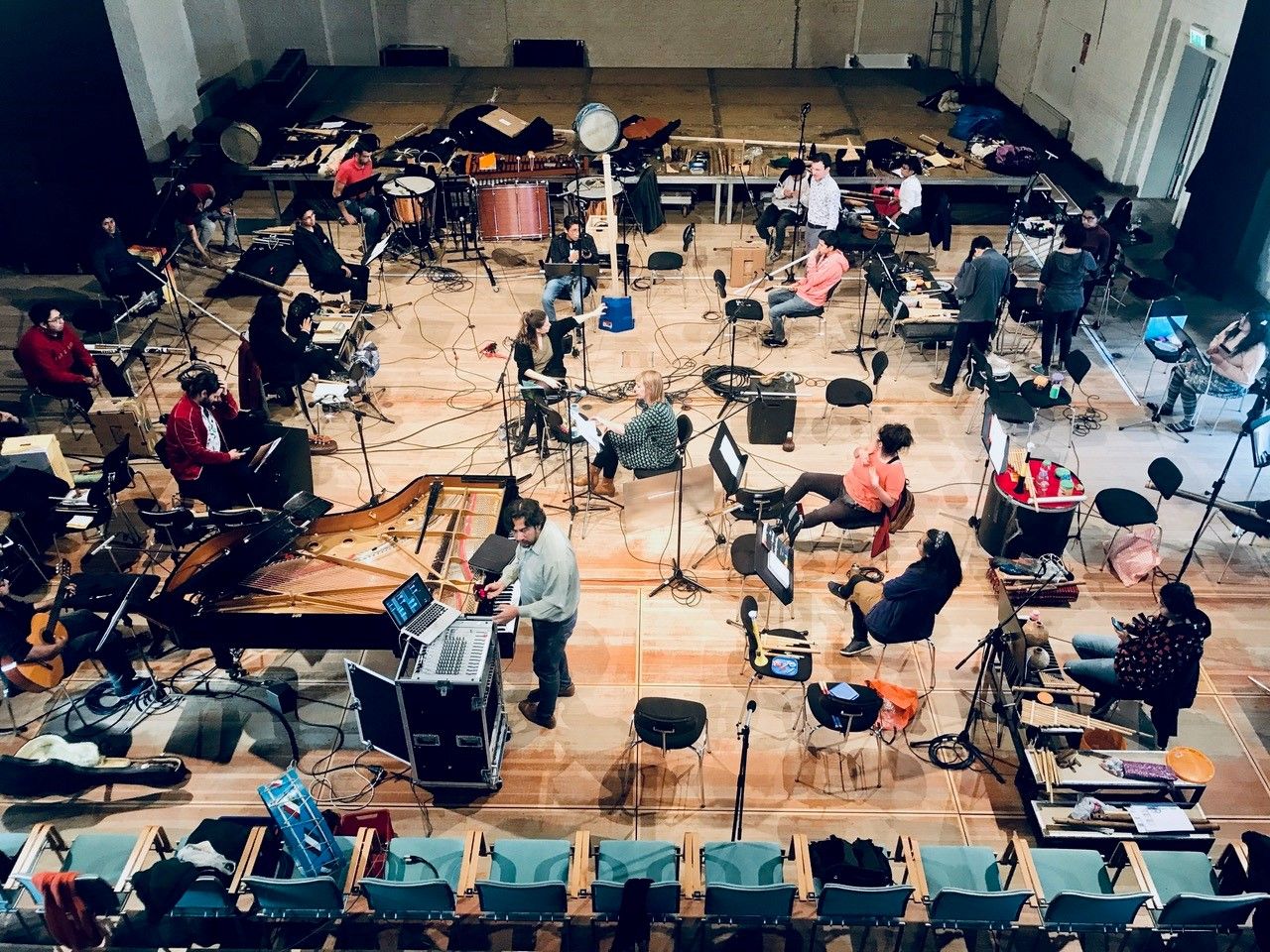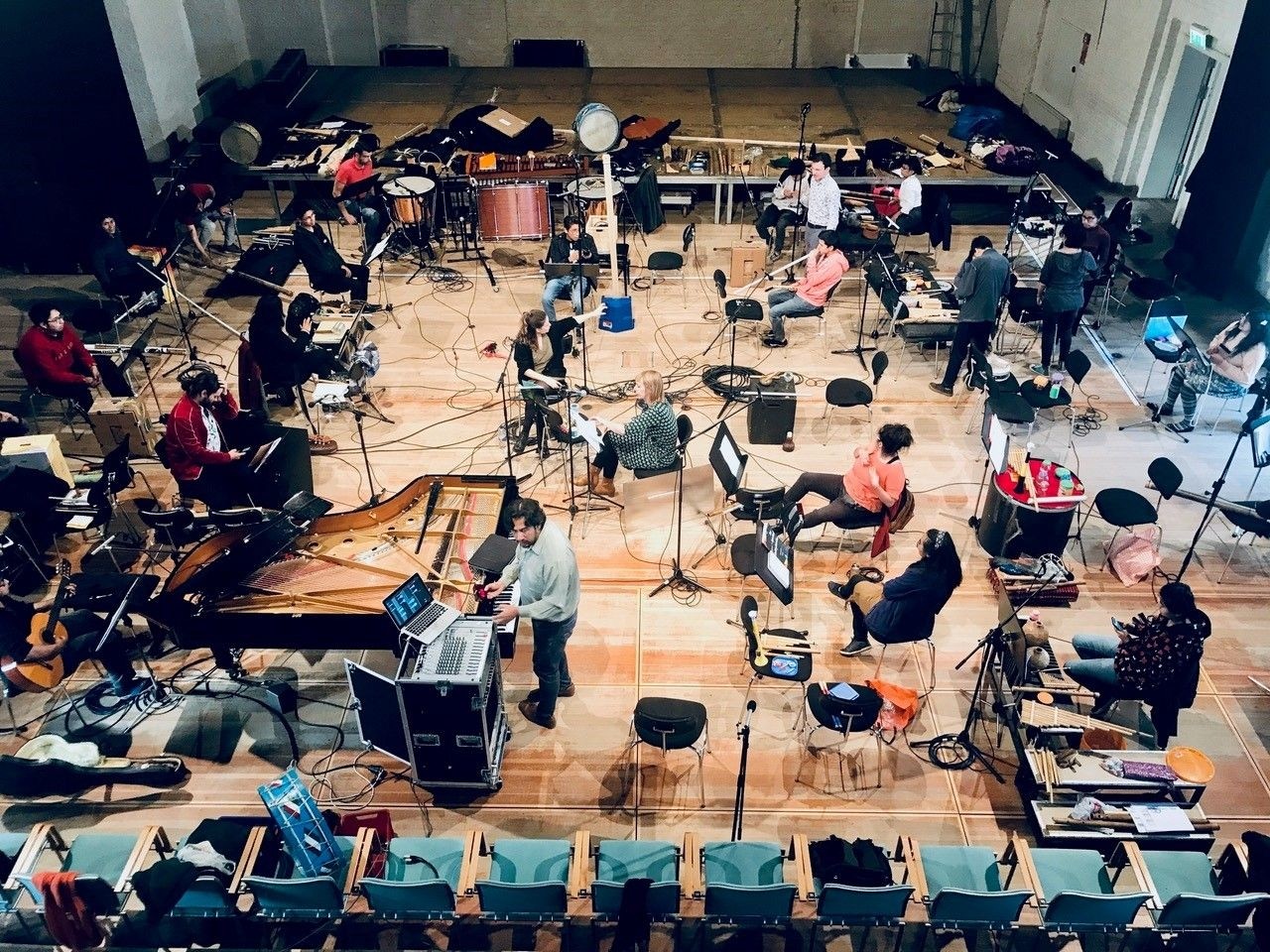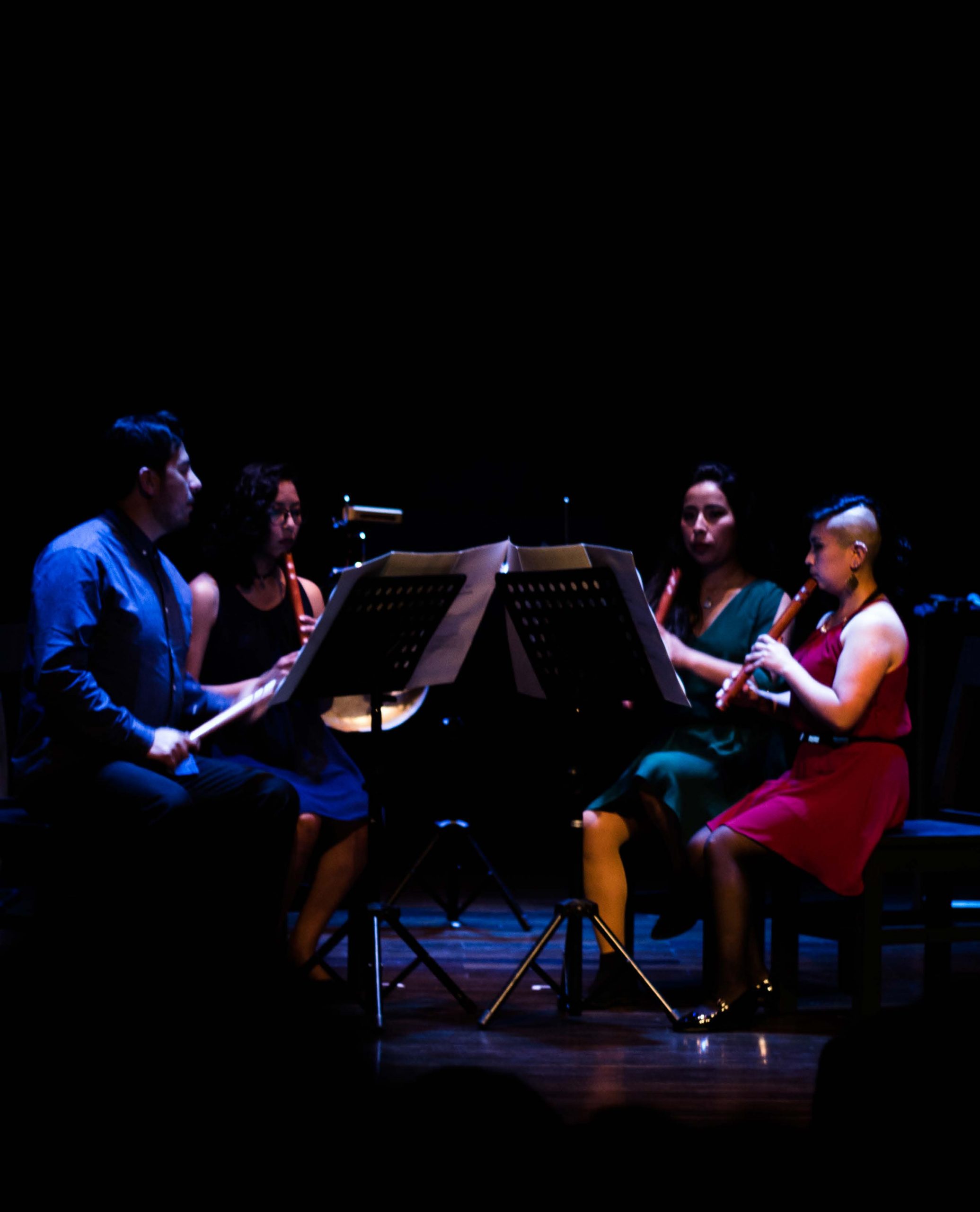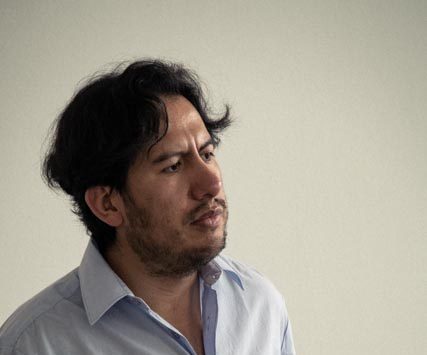Bolivia, Music, 2018
Carlos
Gutiérrez
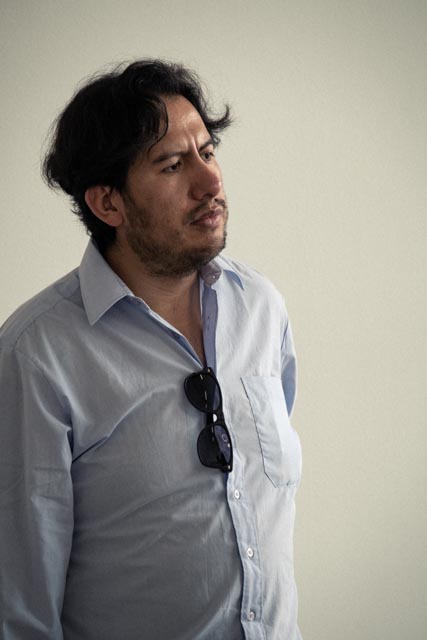
“Everybody works with what they have, with who they are.” Composer, conductor, researcher, and instrument inventor Carlos Gutiérrez owes his artistic convictions to his early contact with the Orquestra experimental de instrumentos nativos (OEIN) in Bolivia. Founded in 1980 by Sergio Prudencio, the ensemble combines the musical practice of the indigenous population with the thinking and techniques of international contemporary music.
Carlos Gutiérrez graduated as a child from the Programma de iniciatión a la musica, the educational project of the experimental orchestra, where students first begin by playing native instruments rather than learning about music through Western culture. The children not only get to know traditional music but also the thinking and aesthetics of experimentation and contemporary art music. In 2002, Carlos Gutiérrez joined the core ensemble of OEIN. At that time he was twenty years old. Today he is a member of the chamber ensemble and assistant to Sergio Prudencio. As part of OEIN, Gutiérrez has created youth ensembles conducted by young people. He composes for amateur and professional ensembles, designs instruments, and teaches at the Conservatorio plurinacional de Música in Bolivia.
Carlos Gutiérrez’s work is defined by a preoccupation with the indigenous culture of the Andean peoples, in particular with that of the Quechua and Aymara. His work series, Ch’ipa, is an artistic exploration of the musical thinking of these indigenous groups. His holistic approach encompasses thinking about sound, structures, places, the practice of music and social life, and is reflected in new works. In Ch’ipa (2015) the graphical score is only a guide and contains no musical notes. Similar to Aymara and Quechua culture, the music is passed on orally and ultimately played from memory. The musicians are arranged into groups. Gutiérrez works out and devises their movements as well as the acoustic processes. He designed the instruments himself. His variation on the siku, the mid-Andean name for the pan flute, consists here of inset pipes that produce beats through a multiphonic technique. The musicians tie seedpods to the souls of their feet, eroding the border between percussion and dance. In Ch’ipa 4 from 2016, a large whispering choir surrounds the audience. Carlos Gutiérrez often works without conductors and with open-ended structures that allow musicians room for free interpretation. Instead, he establishes, where necessary, a sublevel of orchestration that coordinates the interactions of individual groups internally and externally. In creating his homemade instruments he uses everyday materials such as tubes, pans, and pitch pipes, or even natural materials. Textures of related sounds, sometimes reminiscent of natural sounds, characterize his music. Gutiérrez creates delicate fields of sounds that only rarely culminate in clamorous high points. He works with reduced, often simple materials, which he carefully draws distinctions between: with a refined network of whistling sounds, with the whirring sonic buzzing of bullroarers, and the soft sound of blown glass bottles. In 2015, he created Artificios, a sound performance for children set in the pedestrian zones of La Paz in which the social interventions of flute players mingling with passers-by were heard. An intense engagement with the culture of the indigenous groups has also made him aware of music’s ritualistic character: “In my creative work, I’m interested in concentrated forms of sensuous, ritual-like action, but also in how it is represented through the codes of contemporary music. I fully believe that you can access other categories of musical thinking and ways of comprehending sound material through native music.”
Text: Martina Seeber
Translation: Erik Smith



